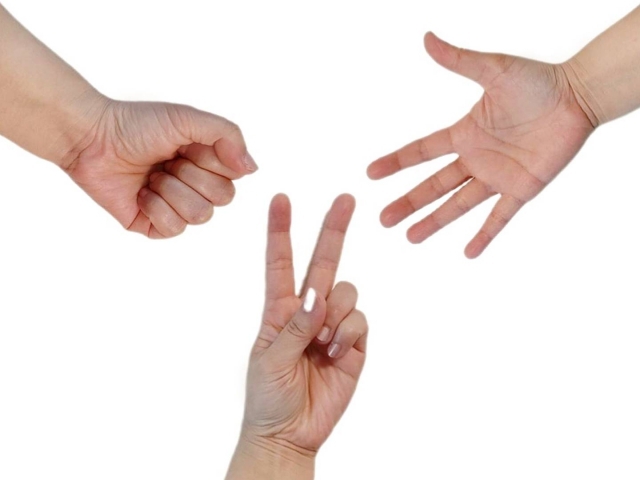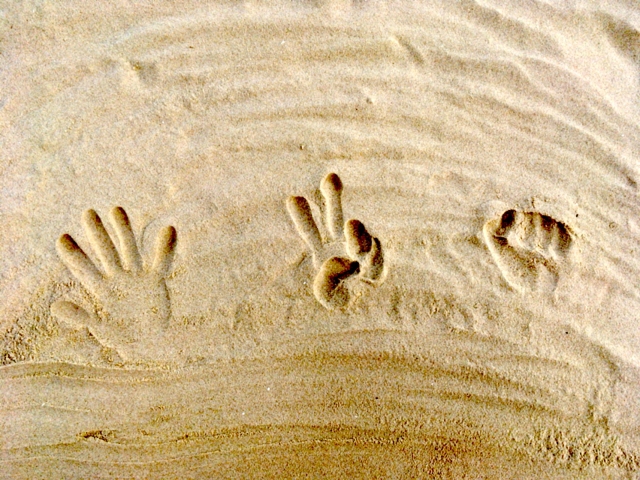In Japan, there is a game called “Janken” in which the winner is decided.
Is there such a game in your country?
There are countries in the world where Janken exists, just like in Japan, and there are also countries where Janken is decided by coins.
There may be some people who have never heard of rock-paper-scissors until they came to Japan.
In this article, we would like to explain the rules of Janken in Japan for such people.

Click here to learn Japanese language with the best one-on-one Japanese tutoring lessons in person or online.
Contents
- 1 Janken is a game of winning and losing that originated in Japan
- 2 Rules of Janken in Japan
- 3 Rules for 3 or more players playing rock-paper-scissors-scissors
- 4 Even in countries with rock-paper-scissors, there are different names for rock-paper-scissors and different rules for rock-paper-scissors.
- 5 Conclusion
Janken is a game of winning and losing that originated in Japan
Although Japanese people use Janken in their daily lives without question, it is actually a game of deciding winners and losers that originated in Japan and is often not used outside of Japan.
In terms of time, it is thought to have been popular from the middle to the end of the “Edo Period”.
Rock, paper, scissors, and paper were used to form the shapes of goo (go), choki (choki), and par (par), respectively, to create rock-paper-scissors-janken.
Originally, the name “rock-paper-scissors” was derived from “shi-ken,” a hand game played by children.
There are various theories as to the origin of the name “janken,” including a change from “ryanken” (two fists) and “jyakuken” (stone fist).
In Japan, the Japanese call to start a game of rock-paper-scissors-scissors (janken) is “Goo first, then janken pon.” It is said that this “first” call was first used by the late comedian Ken Shimura, one of Japan’s most famous comedians, and spread throughout Japan through TV.

Rules of Janken in Japan
The rules of Janken are very simple.
Clench your fist “goo
Choki”: grip all fingers except the index and middle fingers
Palm outstretched “par”.
After the call of “Goo first, then rock, paper, scissors”, one of the three types of rock-paper-scissors is played by saying “pon” (pon).
Goo” loses to “par” but wins to “choki
Choki loses to goo but wins against par.
Pairs lose to chokis but win over goos.
This is how the winner is determined.
However, if the opponents play the same hand, the game becomes “aiko (Even)”.
In this case, the players play rock-paper-scissors with a call of “Aiko, right?
For example, if the game goes on for several rounds, the game is repeated over and over again until the winner is decided.
Rules for 3 or more players playing rock-paper-scissors-scissors
When two players play rock-paper-scissors-scissors, the game is repeated until a winner is determined, which is very easy to understand.
However, when 3 or more players play rock-paper-scissors-scissors, there are different rules.
Basically, you only have to win the rock-paper-scissors game, but it is not worth it in the following cases.
(Example) “The case of four players playing rock-paper-scissors-scissors.
A, Choki
B, Goo
C, Choki
D, par
Suppose that four players play rock-paper-scissors-scissors as above, saying, “First, goo, then janken-pon.
At this time, B has won against A and C, so it is tempting to say “win,” but on the contrary, it has lost against D, right?
A and C also beat D but lose to B. D also beats B but loses to A and C.
D also beats B, but loses to A and C.
In this case, the game is “aiko” because no one is completely ahead of the other three.
A, choki
B, goo
C, choki
D, choki
If this is the case, B is the winner.
Also, if the game is completely settled, there can be more than one winner as follows.
A, goo
B, goo
C, choki
D, choki
In such a case, when deciding the one who will win out, A and B play rock-paper-scissors-scissors with two players.
On the other hand, if only one player is left to lose, C and D play rock-paper-scissors to decide who will win again.

Even in countries with rock-paper-scissors, there are different names for rock-paper-scissors and different rules for rock-paper-scissors.
In Japan, rock, paper, scissors and rock-paper-scissors are called by the same names and rules as described above, but there are countries in the world where the Japanese version of rock-paper-scissors is still practiced.
For example, in the United States, rock, paper, and scissors are called “Rock,” “Paper,” and “Scissors,” and rock-paper-scissors is played according to the same rules as in Japan.
Basically, it is decided by coins, so there are not many cases where it is used, but it is sometimes used in rare cases.
In some cases, “Spock” and “Lizard” are added to the five types of rock-paper-scissors.
Spock loses to Paper and Lizard, but wins against Scissors and Rock.
Lizard loses to Scissors and Rock, but wins against Spock and Paper.
In the Philippines, the rules and names are exactly the same.
In Indonesia, the thumb is the elephant, the index finger is the person, and the little finger is the ant.
The elephant loses to the ant but wins to the man.
The person loses to the elephant but wins over the ant.
The ant loses to the man but wins over the elephant.
Conclusion
In this article, I have explained about “Rules of Janken in Japan”.
In Japan, there has been a game called “Janken” since ancient times, in which the winner is decided by a game of rock-paper-scissors-scissors.
And since rock-paper-scissors is played everywhere even today, foreign nationals visiting Japan may have an opportunity to play it.
Why don’t you try to understand the rules mentioned here and use them to communicate with Japanese people?
Related article:










